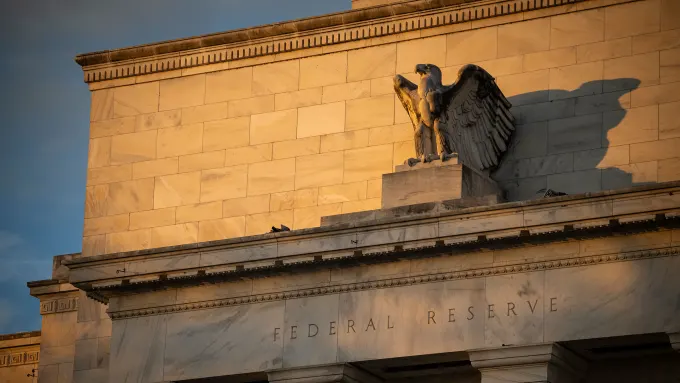Titans of money have been cautioning for quite a long time that approaching international perils are the greatest danger overall to the US economy. In any case, even as wars rage on in the Center East and Eastern Europe, markets have been partaking in a finish of-year rally.
The S&P 500 arrived at its most elevated level since January 2022 on Tuesday, following new information that showed cooling expansion. The flood came even as the Israel-Gaza war escalated and the Russia-Ukraine war moved toward the finish of its subsequent year.
Apparently, until further notice, Money Road has glaring misgivings of the effect of battle on the US economy and is rather more centered around the Central bank and expansion rates than struggle abroad.
What’s going on: JPMorgan President Jamie Dimon has over and over said that international vulnerability is as of now the greatest gamble on the planet.
He pushed, finally month’s New York Times DealBook Highest point, that this might be the most risky time the world has found in many years, and that the conflicts in Ukraine, Israel and Gaza could affect worldwide energy, food supply, exchange and international relations. It could even, he expressed, lead to atomic shakedown (involving the danger of atomic fighting as influence to force one more country into satisfying specific needs).
He’s in good company. EY’s most recent President Standpoint Heartbeat study discovered that the vast majority of Chiefs said they were moving their interests in light of international difficulties.
Fierce contentions abroad represent the biggest danger to business sectors one year from now, as indicated by a Natixis study of 500 institutional financial backers from around the world.
“The greatest macroeconomic gamble for 2024 is international agitators who with one activity can disturb financial and market presumptions around the world,” the gathering composed. That hazard positioned above strategy mistakes by national banks, an easing back Chinese economy and diminishing customer spending.
Be that as it may, the S&P 500 is up by 9% since Hamas’ October 7 assault and up 10% since Russia’s full-scale attack of Ukraine in February, 2022.
“Numerous rocker forecasters bid up madness in regards to the continuous conflict in Ukraine and the October 7 psychological oppressor assault in Israel,” composed Marko Papic, Boss Tactician at the Clocktower Gathering, in a note this week. ” Eventually, neither one of the occasions anily affected markets.”
About the Fed: All things being equal, financial backers seem secured in on the Fed.
Policymakers start their last gathering of the year on Wednesday evening and financial backers are everything except specific they’ll keep rates consistent.
The work market and expansion rates are giving indications of debilitating, and Money Road is wagering that loan fee cuts will start in 2024.
There’s a lot to praise — and financial backers won’t allow international relations to hinder their vacation cheer.
Indeed, yet: It’s a round of sit back and watch for business sectors, say a few financial experts.
“With international pressures raised on the planet, I believe we actually must don’t conflate the exceptionally muffled reaction that we’ve seen, say over the last four to five weeks, with business sectors being extremely hopeful, since they’re not,” remarked Sinead Colton Award, approaching boss venture official at BNY Mellon, finally month’s Reuters NEXT gathering in New York.
“They’re watching the development extremely, intently and there’s a supposition that this multitude of occasions remain genuinely contained. Should that turn out not to be the situation, you will see markets respond forcefully, and that would resonate past the value markets,” she said.
Argentina to depreciate peso by more than half as a feature of crisis monetary changes
Argentina will depreciate the peso by over half as a feature of crisis measures to assist the country’s striving economy, the country’s Economy With ministering Luis Caputo declared Tuesday.
The distinct move changes the authority transformation rate to 800 pesos for each dollar from 365 pesos and comes only days into President Javier Milei’s term, reports my associate Krystal Hur.
Milei crusaded on a vow to dispose of the peso and supplant it with the dollar to get the economy in the groove again. The peso has been misleadingly upheld for quite a long time by severe capital controls, and its worth has plunged generally 52% this year against the US dollar.
Argentina’s national bank as of late has printed a greater amount of the peso to assist the country’s administration with trying not to default on its obligation. That has brought about soaring costs.
The move denotes the first of a few moves toward pack down that excessive inflation, which drove Argentina’s national bank in October to raise its benchmark financing cost to 133%.
Caputo on Tuesday emphasized Milei’s mission subject that “there is no cash” as he framed different measures, including a slice to new open works projects, plans not to recharge work gets that have been active for than one year and lessening energy and transportation endowments.
“For a couple of months we’ll be more terrible off, especially with expansion,” he said.
As to works, that’s what caputo said “there’s no cash to pay for works that frequently end up in the pockets of legislators and money managers.”
The Worldwide Money related Asset said Tuesday following Caputo’s comments that it upholds the new drives.
“IMF staff invite the actions reported recently by Argentina’s new Economy Priest, Luis Caputo. These striking starting activities expect to fundamentally work on open funds in a way that safeguards the most weak in the public eye and reinforce the unfamiliar trade system,” Julie Kozack, IMF head of correspondences, said in an official statement.
UPenn names J. Larry Jameson as its in-between time president
The College of Pennsylvania’s leading group of legal administrators is tapping J. Larry Jameson, its longest serving senior member, to turn into the school’s break president, supplanting Liz Magill, following her acquiescence last end of the week.
Jameson is dignitary of UPenn’s clinical school and will assume control of the Elite level foundation at a snapshot of emergency, reports CNN’s Matt Egan.
The leading body of legal administrators said Jameson will be designated as break president successful Tuesday and stay in that job until an extremely durable president is named.
“Penn is lucky to have the advantage of Dr. Jameson’s insight and authority during this season of change,” Julie Platt, the break seat of UPenn’s leading group of legal administrators, said in a declaration sent Tuesday evening.
Platt lauded Jameson as a “quintessential College resident” and a “cooperative, imaginative and visionary pioneer with broad commitment with every one of Penn’s 12 schools.”
Both of UPenn’s chiefs starting around a couple of days prior — board seat Scott Bok and Magill — left Saturday simply seven days after Magill’s grievous declaration before Congress on discrimination against Jews.
Magill ventured down under massive tension on Saturday in the wake of battling to answer whether calls for massacre against Jews disregards college rules. Magill had stayed interval president until Tuesday. Penn didn’t have a progression plan set up in spite of a surge of requires Magill’s renunciation this week, a source told CNN.
Magill will stay on Penn’s workforce as a tenured teacher at Penn Carey Graduate school.
Jameson is UPenn’s longest-serving dignitary and recently reproved calls for destruction as a type of disdain, as per The Day to day Pennsylvanian. Jameson likewise fills in as leader VP of the College of Pennsylvania for the Wellbeing Framework.

